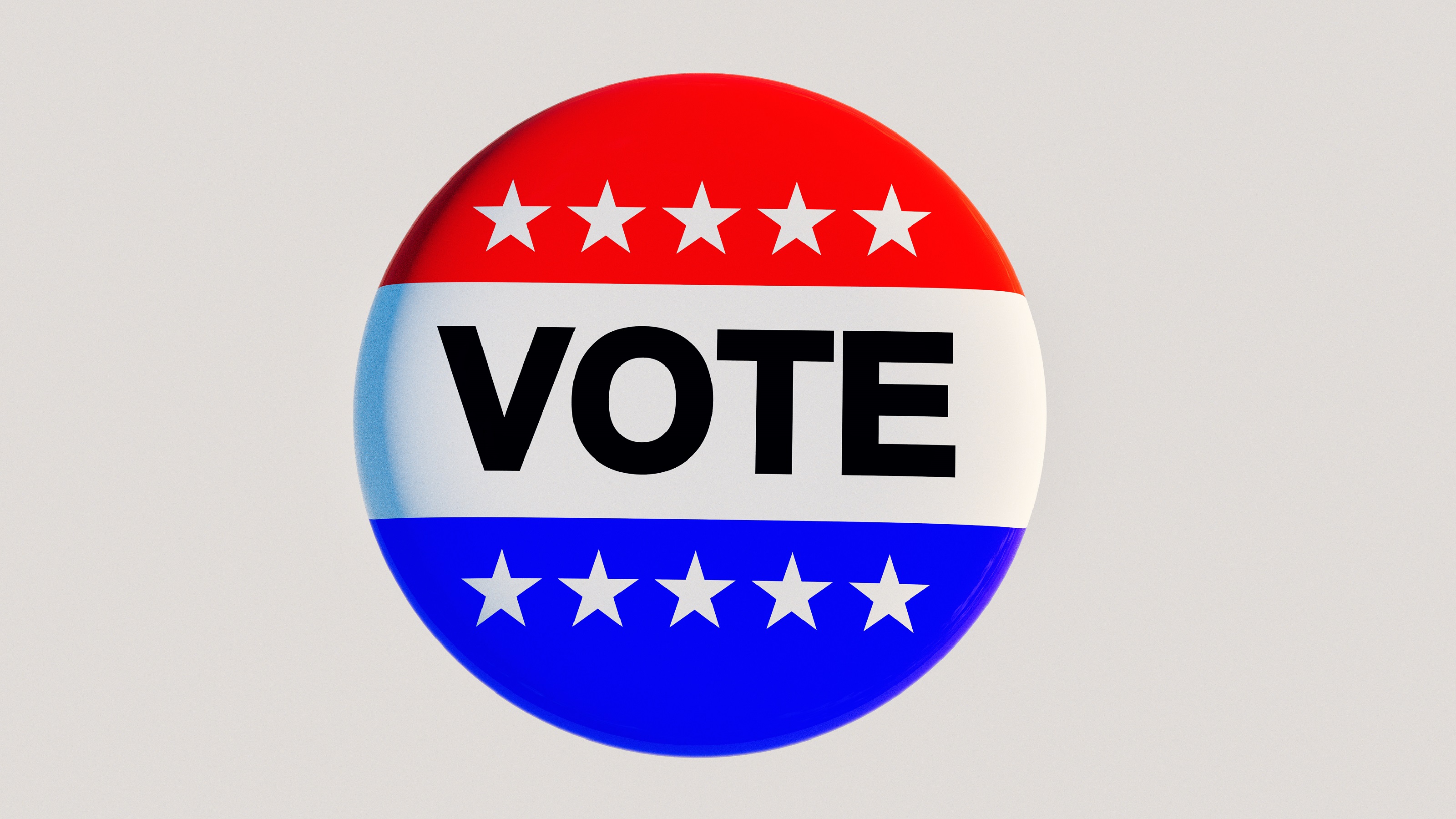Five Tips for Managing Investments Before the Election
Investors should resist the impulse to make major changes solely in response to the latest polls or policy pronouncements.


Profit and prosper with the best of Kiplinger's advice on investing, taxes, retirement, personal finance and much more. Delivered daily. Enter your email in the box and click Sign Me Up.
You are now subscribed
Your newsletter sign-up was successful
Want to add more newsletters?

Delivered daily
Kiplinger Today
Profit and prosper with the best of Kiplinger's advice on investing, taxes, retirement, personal finance and much more delivered daily. Smart money moves start here.

Sent five days a week
Kiplinger A Step Ahead
Get practical help to make better financial decisions in your everyday life, from spending to savings on top deals.

Delivered daily
Kiplinger Closing Bell
Get today's biggest financial and investing headlines delivered to your inbox every day the U.S. stock market is open.

Sent twice a week
Kiplinger Adviser Intel
Financial pros across the country share best practices and fresh tactics to preserve and grow your wealth.

Delivered weekly
Kiplinger Tax Tips
Trim your federal and state tax bills with practical tax-planning and tax-cutting strategies.

Sent twice a week
Kiplinger Retirement Tips
Your twice-a-week guide to planning and enjoying a financially secure and richly rewarding retirement

Sent bimonthly.
Kiplinger Adviser Angle
Insights for advisers, wealth managers and other financial professionals.

Sent twice a week
Kiplinger Investing Weekly
Your twice-a-week roundup of promising stocks, funds, companies and industries you should consider, ones you should avoid, and why.

Sent weekly for six weeks
Kiplinger Invest for Retirement
Your step-by-step six-part series on how to invest for retirement, from devising a successful strategy to exactly which investments to choose.
Elections can have a significant impact on markets, with President Joe Biden’s decision not to seek re-election adding to the complexity of managing investments in an election year. Tightly contested races for the presidency and both houses of Congress amplify already-elevated uncertainty about the outlook for markets. The following five tips may be helpful for investors seeking help in navigating election-year markets:
1. Cashing out of the market is usually a bad idea.
It can be tempting to sell stocks and move to the sidelines until election results are finalized. Historically, giving in to that temptation has been unwise. The S&P 500 has generated positive returns in 20 of the 24 election years since the beginning of the index. The four negative returning years had little to do with the election cycle. Three of the four negative election-year return periods (1932, 2000 and 2008) were during recessions; the fourth was during World War II (1940).
2. Government policy can help or hurt sectors, but fundamentals still matter.
Energy policy is a clear area of distinction between both presidential candidates. A second Donald Trump administration is likely to be more friendly to domestic oil and gas production, with Kamala Harris more likely to favor additional spending on renewable energy.
From just $107.88 $24.99 for Kiplinger Personal Finance
Become a smarter, better informed investor. Subscribe from just $107.88 $24.99, plus get up to 4 Special Issues

Sign up for Kiplinger’s Free Newsletters
Profit and prosper with the best of expert advice on investing, taxes, retirement, personal finance and more - straight to your e-mail.
Profit and prosper with the best of expert advice - straight to your e-mail.
Industrial companies may benefit under either party, as both candidates prioritize bringing manufacturing back to the United States. Taxes, regulation and subsidies can boost or hamper the fortunes of individual companies and sectors, but economic growth and business fundamentals are typically the dominant factors influencing the direction and magnitude of long-term performance. Well-run companies with strong demand for their products and services can typically overcome higher taxes or regulatory burdens; favorable government policy won’t typically be enough to rescue poorly run companies facing weak demand.
3. China will be a target of tariffs and trade restrictions regardless of the election outcome.
Both parties appear to be in competition to demonstrate toughness on China. Tariffs and trade restrictions targeting China are likely regardless of the election outcome. China has ample room to retaliate, creating elevated risk for multinational companies with substantial revenues from China as well as companies relying on China-based supply chains and resources. China is the dominant producer of rare earth materials used in electronics and pharmaceutical ingredients, one of many potential areas of vulnerability for the U.S. economy in a trade war.
4. Fed policy is not the only factor influencing interest rates.
The age of fiscal austerity may be over regardless of who wins. Globally, the bill is coming due after years of underinvestment or poorly executed investment in public services. Spending priorities between infrastructure, social services and defense could vary dramatically depending on the election results, but it appears unlikely that fiscal restraint will be a priority in the near future.
Although the Federal Reserve appears on the verge of easing interest rates, Fed policy has more influence over short-term rates than long-term rates. With debt and deficits likely to remain high under either party and the Fed reducing its footprint in the Treasury market, the government will need to find buyers for its debt. There is minimal risk of a government debt default, but the yield the government needs to offer to attract buyers may stay stubbornly above the levels we’ve seen since the 2008 financial crisis.
5. Don’t overreact to the tax proposals floated by the candidates.
Tax policy may be more influenced by control of Congress than by who wins the presidential election. Major changes in tax policy would require a clean sweep by one party, which is a possibility but not highly probable at this time. Congress will debate extending cuts enacted under the Tax Cuts and Jobs Act (TCJA) before their expiration at the end of 2025 in accordance with current law, with incremental modifications the likely scenario absent one party having control of the White House alongside a dominant majority in Congress.
Closing thoughts
Elections influence the direction of markets, but investors should resist the impulse to make major changes solely in response to the latest polls or policy pronouncements. Successful investors consider elections alongside a wide variety of factors that influence markets while staying focused on maintaining a sound long-term asset allocation and investment strategy.
Related Content
- Estate Planning Strategies to Consider as Election Nears
- What Investors Should Keep in Mind This Election Season
- How Will the 2024 Election Impact Your Retirement?
- Weak July Jobs Report Signals Steep September Rate Cut: What the Experts Are Saying
Investments in securities are not insured, protected, or guaranteed and may result in loss of income and/or principal. This communication may include opinions and forward-looking statements. All statements other than statements of historical fact are opinions and/or forward-looking statements (including words such as “believe,” “estimate,” “anticipate,” “may,” “will,” “should,” and “expect”). Although we believe that the beliefs and expectations reflected in such forward-looking statements are reasonable, we can give no assurance that such beliefs and expectations will prove to be correct.
Profit and prosper with the best of Kiplinger's advice on investing, taxes, retirement, personal finance and much more. Delivered daily. Enter your email in the box and click Sign Me Up.

Daniel S. Kern, CFA®, CFP®, chief investment officer of Nixon Peabody Trust Company, is responsible for overseeing the firm’s investment process, research activities and portfolio strategy. He previously was the managing director and chief investment officer of TFC Financial Management. Earlier in his career, Dan was head of asset allocation at Charles Schwab Investment Management and managed global and international equity portfolios for Montgomery Asset Management. He is a contributor to TheStreet.com and ThinkAdvisor.com and a regular guest on Bloomberg’s Baystate Business and TD Ameritrade Network.
-
 Nasdaq Leads a Rocky Risk-On Rally: Stock Market Today
Nasdaq Leads a Rocky Risk-On Rally: Stock Market TodayAnother worrying bout of late-session weakness couldn't take down the main equity indexes on Wednesday.
-
 Quiz: Do You Know How to Avoid the "Medigap Trap?"
Quiz: Do You Know How to Avoid the "Medigap Trap?"Quiz Test your basic knowledge of the "Medigap Trap" in our quick quiz.
-
 5 Top Tax-Efficient Mutual Funds for Smarter Investing
5 Top Tax-Efficient Mutual Funds for Smarter InvestingMutual funds are many things, but "tax-friendly" usually isn't one of them. These are the exceptions.